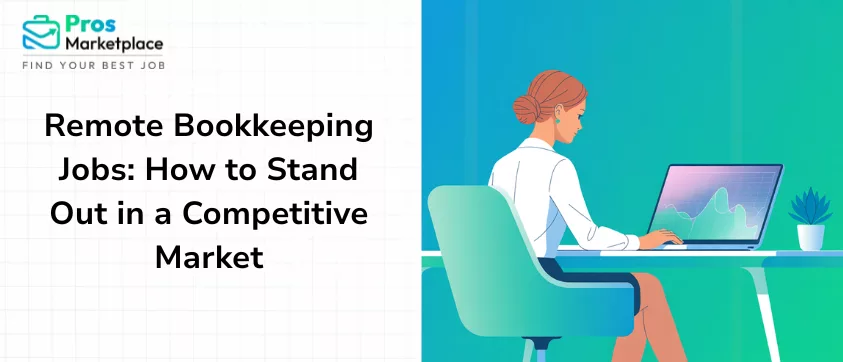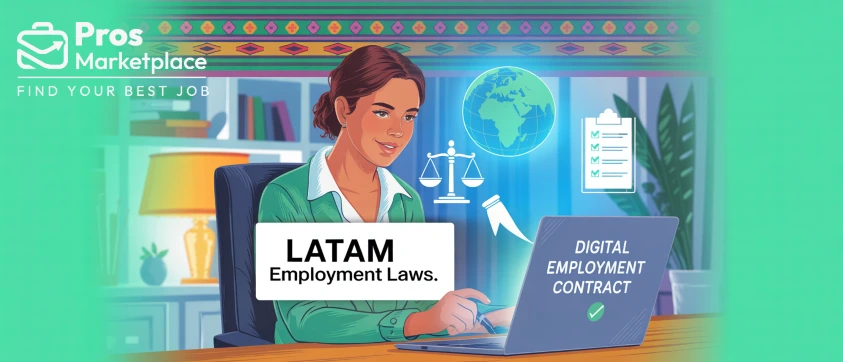When hiring, many businesses in Latin America turn to outsourcing. This is where a staffing agency comes into play. They help companies find qualified workers, saving time and effort during the hiring process. In general, these agencies provide temporary, or permanent placements and contract work. Staffing agencies are more useful for companies that want to hire people immediately, need specific skills, or want to hire from outside their company. So here is a guide on how businesses can get the most out of staffing agencies and also how much staffing agencies charge.
Types of Staffing Services
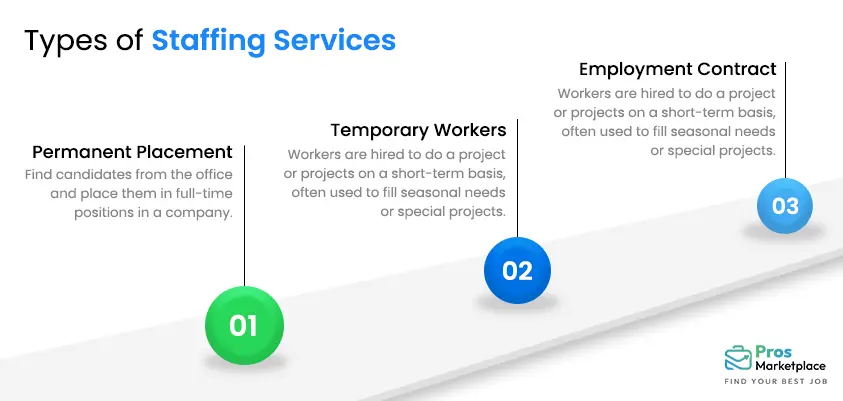
Whether it is a temporary job requiring special skills or a permanent member of your team, the type of staff a business chooses can affect its success. Staffing agencies offer a wide range of services for various recruiting needs. Understanding these options allows the company to make decisions that align with long-term and current needs.
Before getting into the costs, let us look at some of the types of staffing services available:
- Permanent Placement: Find candidates from the office and place them in full-time positions in a company.
- Temporary Workers: Workers are hired to do a project or projects on a short-term basis, often used to fill seasonal needs or special projects.
- Employment Contract: An employer hires an employee temporarily and converts him to full-time employment after seeing their performance.
Composition of Staffing Agency Fees
The cost of a staffing agency depends on many factors, like the service required, the industry in which the business is involved, and the location where the business takes place. Normally, there are the following methods of charging fees by a staffing agency:
- Hourly Wage Markup: Temporary staffing agencies often charge a markup on the hourly wages. This ranges from 25% to 100%, depending on the complexity and the demand for the skill required.
- Placement Fee: Permanent placements are those through which agencies charge a one-time fee percentage of an employee’s salary for the first year of work. The fees usually run between 15% and 30%.
- Employment Contract: This arrangement provides an employer with a way to hire a temporary employee and then decide to convert that employee into a full-time job once they have found the job.
Factors Influencing Staffing Agency Costs in Latin America
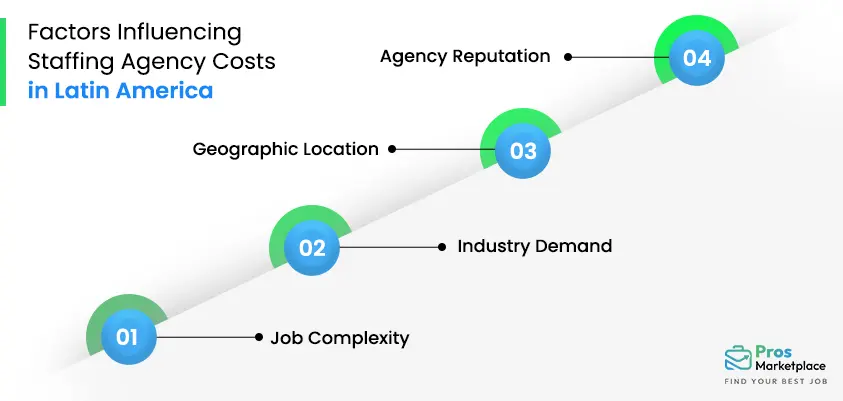
The cost of staffing agencies in Latin America is affected by many factors related to the economic diversity of the region. Variables such as job complexity, business needs, and geographic location all play a role in determining labor costs. The reputation and track record of the organization can also affect the price. Understanding these factors is important for businesses operating in the region to control costs and ensure they receive the best possible service.
By determining how these elements interact, companies can make better decisions when choosing talent and ultimately optimize their human resources.
Some factors that might influence the cost of staffing services in Latin America are as follows:
- Job Complexity: Fee rates are charged more for any position that requires specialized skills and advanced qualifications since finding appropriate candidates to fill such a vacancy becomes difficult.
- Industry Demand: Where there is demand for a certain line of talent, the case in point being IT or engineering, agencies are known to charge more to customers.
- Geographic Location: As a result, prices tend to be higher in some countries in Latin America than in others. For example, employing people in Brazil or Mexico might have special conditions compared to smaller markets like Costa Rica or Panama.
- Agency Reputation: More established agencies that have a respectful background and reputation charge more fees since they deliver quality in their candidate pipeline.
Cost Breakdown: What Employers Need to Know
Figuring out the cost of connecting with an employment agency can be stressful for employers, especially when trying to budget for different types of recruitment. It is important to break down the cost structures to help reduce the costs.
Whether it is temporary workers or contract hires, each type has its costs. By analyzing them in detail, employers can clearly understand what they are paying for and why, allowing them to make informed decisions to support their business needs without spending too much money. This transparency is essential for managing expectations and ensuring efficiency.
The typical fees will be broken down to help one better understand the costs associated with the agencies. Staffing costs are thus:
| Staffing Type | Cost Structure | Example |
| Temporary Staffing | Markup on an hourly wage | Worker earns $10/hr, agency markup is 50%, employer pays $15/hr |
| Permanent Placement | Percentage of first-year salary | Salary is $40,000, agency fee is 20%, employer pays $8,000 |
| Contract-to-Hire | Hourly rate + conversion fee | Hourly rate is $15, conversion fee is $5,000 |
Why Use a Staffing Agency?
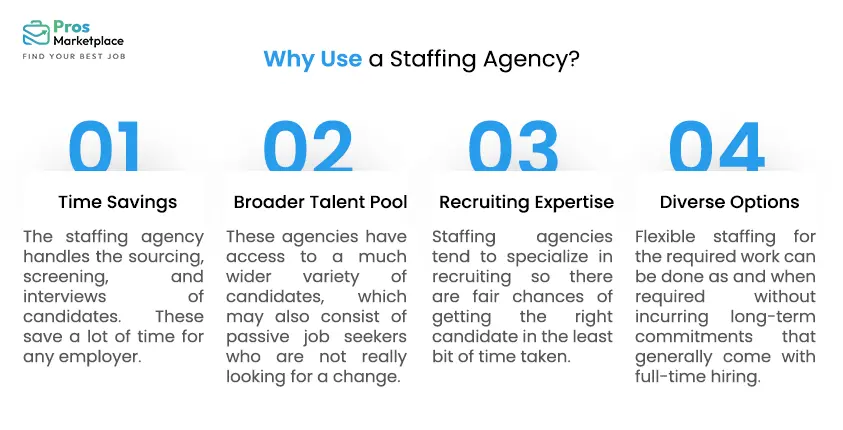
Staffing agencies offer solutions by improving recruiting and providing access to a large, diverse pool of candidates. These agencies provide expertise in listing jobs as well as matching candidates to jobs, saving businesses significant time and resources. Whether a company is looking to fill employees quickly, access hard-to-find talent, or simply streamline the hiring process, a staffing agency is a good choice.
While the costs of using a staffing agency may seem huge, there are several benefits:
- Time Savings: The staffing agency handles the sourcing, screening, and interviews of candidates. These save a lot of time for any employer.
- Broader Talent Pool: These agencies have access to a much wider variety of candidates, which may also consist of passive job seekers who are not really looking for a change.
- Recruiting Expertise: Staffing agencies tend to specialize in recruiting so there are fair chances of getting the right candidate in the least bit of time taken.
- Diverse Options: Flexible staffing for the required work can be done as and when required without incurring long-term commitments that generally come with full-time hiring.
Tips for Latin American Employers on What to Keep in Mind While Hiring from a Staffing Agency
Working with an agency helps you to create partnerships that fit your company’s needs and goals. To get the most out of this relationship, follow these tips.
Understand the Fee Structure – Look at how the agency’s fees are put together and what is included in the cost.
- Check the Agency’s Reputation: Know the agency’s track record and obtain references from other clients in your industry.
- Clearly State Expectations: Clearly communicate the needs and expectations for your hiring to the agency so they will dispatch the proper candidate for your business.
- Negotiate Fees: Do not fear negotiating fees with the agency, especially if you are making multiple hires or seeking to build a long-term partnership.
Conclusion: Is a Staffing Agency Worth the Investment?
The call every employer in Latin America needs to make revolves around the cost and the investment in time-saving, an extension of the talent pool, and a guarantee of a more effective recruitment process. While the fees that a staffing agency entails can be high, with the right one, you will find those perfect candidates who contribute to your company’s success.
With today’s competitive job market, it becomes imperative that a business has the right kind of talent. Partnering with an experienced and good staffing agency will help your business leverage its capabilities in terms of sourcing talented staff to meet your growth objectives.
Whether you are a small business with only a few key positions to fill or a large corporation looking to keep new employees coming, there is the right application of staffing agencies that will guide you into making a proper decision in line with your business goals.
If you’re considering working with a staffing agency, take your time in studying available options and costs, and weigh the potential benefits. By doing so, you can be guaranteed to make the right decision based on your unique needs and company budget.
Also Read: What is Wage, Pay, and Salary Compression?


